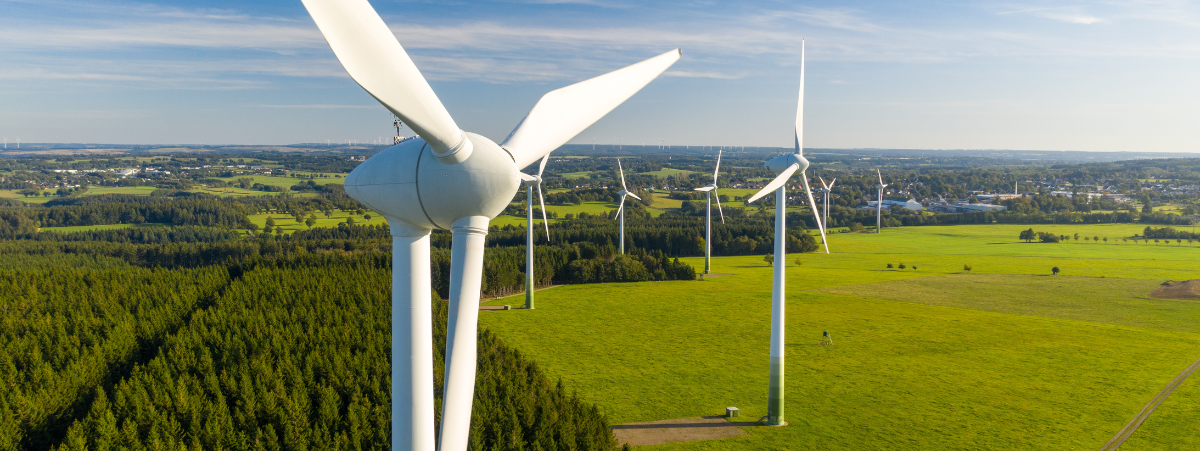A new year is beginning, and climate action expectations are high. As our window to act becomes ever smaller, what should be the top climate change priorities in 2023?
ClimateTrade prides itself on being at the forefront of climate action: we regularly publish insights on the latest trends and participate in global events gathering the world’s climate leaders. As such, we have analyzed last year’s climate developments to predict what should be next in 2023.
Align corporate goals with science-based targets
More companies than ever (about one third, or 34%) have published official decarbonization targets to tackle climate change. Some are focused on carbon neutrality, others on net zero and others go as far aiming to become carbon negative (absorbing more emissions than they emit). But too few of these targets have been audited by third parties for feasibility, and even fewer are aligned with the Science-Based Targets Initiative (SBTI), a standard created to ensure that corporate targets actually contribute to the goals of the Paris Agreement. This is leading some experts to predict that 93% of the companies with a declared climate goal will not be able to achieve it. Today, 834 companies around the world have SBTI-aligned targets. Increasing this number must be a top priority in 2023 if we are to ensure the feasibility of climate goals and hold companies accountable for meeting their objectives.
Finalize Article 6 of the Paris Agreement
Since the Paris Agreement was signed in 2015, governments have been working to define a new framework for international carbon trading within its Article 6. At COP26 in Glasgow, negotiators settled certain points on how to avoid double-counting (a carbon credit being claimed by both the seller or host country and the buyer), which projects from the Carbon Development Mechanism (CDM) would be able to be transferred to the new system, and which Article 6 transactions would be taxed.
But last year, they made less progress at COP27, instead pushing deadlines until COP28. So with only two years left until carbon credits begin to be issued under this mechanism, 2023 has to be a productive year for Article 6, in order to formalize the international trade of emissions reductions.
“Transparency, justice, consensus and interdependency, these are the pillars for the successful execution of Article 6 of the Paris Agreement. Let’s keep in mind that this is arguably the most ambitious article for climate action, since it manages to involve the private sector,” says José Lindo, Co-Founder and Head of Impact at ClimateTrade.
A tipping point for renewable energy
In order to meet the goals of the Paris Agreement and keep the global temperature increase below 1.5ºC, energy investment needs to reach between US$40.2 and US$114.4 trillion by 2050. But the balance between low-carbon technologies and fossil fuels must shift. According to Bloomberg New Energy Finance, the ratio of low-carbon investment v. fossil fuel investment went from 0.5:1 between 2011 and 2015 to 0.7:1 for 2016-2020, and finally, 0.9:1 in 2022. To date, renewables and other low-carbon energy technologies have never received the same level of investment as fossil fuels, despite ambitious global targets that would require massive divestment from fossil fuels. BloombergNEF points out that by 2030, this ratio should reach roughly 4:1, “meaning for each dollar invested in fossil fuel energy supply, four would be invested in low-carbon energy supply”.
What if 2023 was the first year investment in low-carbon energy equaled that in fossil fuels? It’s about time we achieved this tipping point.
Increased focus on biodiversity protection and regenerative agriculture
One thing has become clear over the past couple of years: climate action is about more than just carbon. Last year, biodiversity took center stage at climate conferences, and the world seemed to awaken to the importance of protecting nature and all its diversity in order to maintain the balance of our planet. ClimateTrade commercialized Voluntary Biodiversity Credits developed by Terrasos, and the initiative was recognized by the World Economic Forum and in the media.
In 2023, we hope that this focus on biodiversity will increase and take different forms. One of them is the implementation of regenerative agriculture, a type of food production that restores soil health and protects natural ecosystems. The European Union is increasingly focused on this method (also called carbon farming), and we at ClimateTrade are dedicated to making it a reality: we have teamed up with Azolla Projects on the first carbon farming project in Spain. Let’s renew our commitment for the coming year.
Large-scale development of ocean-based solutions
Finally, our fight against climate change should take us to new territories, or more specifically, new oceans. Blue carbon is the absorption of CO2 in coastal ecosystems such as peatlands and mangroves, and it has enormous potential to help us meet our climate goals. According to the WEF, restoring coastal ecosystems could result in a return of US$11.8 billion in carbon finance and 380 million tons of carbon sequestration by 2040. But it needs to be scaled up. ClimateTrade is doing its part to help develop more supply of blue carbon credits: last November, we launched the Albluefera Project with CE/R+S to store carbon in the wetland ecosystem of the Valencian Community. We expect more projects like this to be developed in the coming year.







